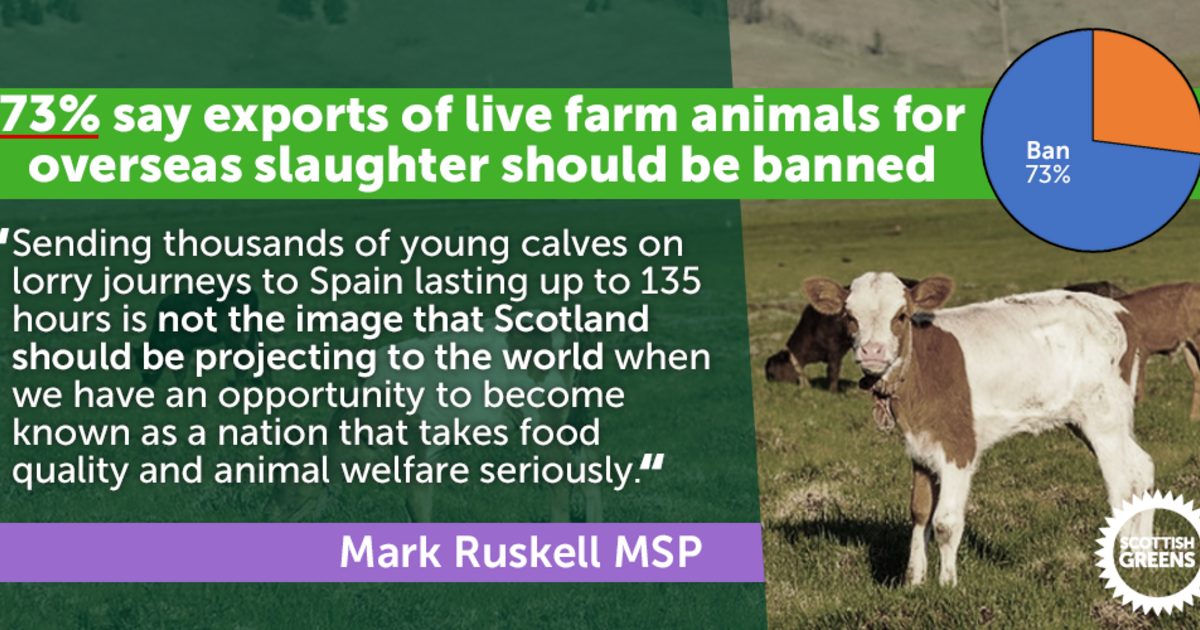Ewing under pressure to rethink support for cruel exports of live farm animals as our poll shows Scots want a ban

The SNP’s Rural Economy Secretary Fergus Ewing is under pressure to rethink his support for cruel exports of live farm animals for overseas slaughter, after an opinion poll commissioned by the Scottish Greens showed three out of four Scots want the practice banned.
The poll also shows a ban on live exports is supported by more than half of people who say they voted SNP at the last election, while only a quarter oppose a ban and just under a quarter don’t know.
In 2016, around 2,400 sheep were sent from Scotland for slaughter to Germany and France and 3,000 Scottish calves were exported to Spain. In 2017, 5,000 young calves were sent from Scotland to Spain in journeys lasting up to 135 hours.
Scottish Greens food and farming spokesperson Mark Ruskell MSP said:
“Live animal exports are something the public care deeply about. An e-petition to the UK Parliament earlier this year calling for a ban received nearly 100,000 signatures, while a recent EU-wide petition received over one million signatures. Yet these concerns have been swept aside by an uncaring Cabinet Secretary who has unilaterally decided Scotland’s position with no evidence and no consultation
“The polling we produce today shows just how out of step SNP ministers are with the Scottish public. Sending thousands of young calves on lorry journeys to Spain lasting up to 135 hours is not the image that Scotland should be projecting to the world when we have an opportunity to become known as a nation that takes food quality and animal welfare seriously.
"We've seen time and time again SNP ministers and MSPs fail to make the right choices over animal welfare, whether it's on fox hunting or tail docking. Live animal exports are cruel and unnecessary, and a ban won't affect movements from our islands to the mainland.
“It’s not too late for Fergus Ewing to listen to the public, listen to the evidence, and support a ban so we can focus on exports of meat products rather than live animals.”